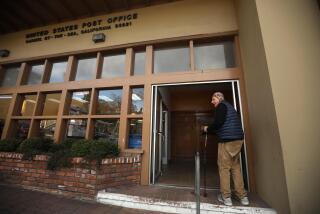Beyond the Maps to Starsâ Homes
You may have seen them in the back of such magazines as Premiere, TV Guide, Us and the National Enquirer, lists of thousands of celebrity home addresses for under $30. Many of the entries are nothing more than the offices of agents, managers or a post office box, and maybe theyâre for âstarsâ who havenât shown since the silent movies, but a surprising number list the private residences of very famous faces, leaving some celebrities feeling highly vulnerable to obsessed fans and potential stalkers.
âTheyâre definitely a danger,â says Philip Little of West Coast Detective, a Los Angeles-based agency specializing in stalking cases for celebrity clients. âEven though many of the addresses are outdated, a lot of them are accurate. A lot of our problems have come from those address lists. We get hundreds of (stalking) cases every year and thatâs the top of our security concerns. If we could close those holes completely we could go a long way to solve the celebrity stalking problem. Letâs at least make it difficult for them.â
Unfortunately, once any address becomes public information, it remains so. âThis is a commerce situation where someone has a profit center,â says Little. âIt becomes a question of freedom of speech and constitutional rights. Itâs not something you can easily stop when itâs a matter of the free market.â
Stalking officially became a crime in California after the 1989 murder of actress Rebecca Schaeffer. The co-star of the television sitcom âMy Sister Samâ was shot to death on her doorstep by an obsessed fan. Her killer, Robert John Bardo, had gotten her home address, with the help of a private detective, from the California State Department of Motor Vehicles.
Since the Schaeffer killing, it has been more difficult, though not impossible, to obtain home addresses from DMV files. But the DMV is just one source of such private information available to resourceful businesses or obsessed fans.
âIf I were on the lists, Iâd be concerned,â says Lieut. John Lane, head of LAPDâs Threat Management Unit, a department formed in response to Schaefferâs murder. Lane is also founding president of ATAP, the Assn. of Threat Assessment Professionals. âIt would make the lives of all those people safer if it were not available. Iâve been amazed at the names Iâve seen on the lists and the accuracy of the information. It potentially exposes those people to become the focus of attention that could . . . pose a risk to them.â
Stalking of both average citizens and celebrities âis and will contin ue to be on the rise,â Lane says. He credits the media obsession with the private lives of public people for the increasing threat to the famous. Such television shows as âLifestyles of the Rich and Famousâ and âEntertainment Tonightâ and videos that allow infinite reruns of favorite personalities foster an illusion of intimacy.
âThat encourages people suffering certain mental disorders to imagine a relationship with their favorite newscaster or star,â Lane says. âThey think that they can really write and have lunch with them and start a relationship. Or, in some cases, they think they do have a relationship, they believe theyâre married to them, have children with them. Itâs related to the fact they see them so much, theyâre so much in the public eye.â
As it happens, âEntertainment Tonightâ and âHard Copy,â as well as the Hollywood Reporter, Variety and a large number of charitable groups seeking celebrity contributions are among the clients of ACS, a Glendale-based distributor of celebrity address lists. Most of ACSâs business, however, comes from the general public--fan-letter writers and serious autograph seekers. According to ACS founder Tom Thompson, the company gets from 700 to 1,000 requests a month for the $28 list of nearly 10,000 celebrity addresses.
ACS began as a custom letter-writing business in 1968 with one Robotyper automatic typewriter and Thompsonâs talent as a forger. Nonprofit groups would come with their star-studded mailing lists for celebrity-signed invitations and donation appeals that could pass for personal. In the summer of 1973, Thompson signed Ronald Reaganâs signature to some 80,000 âpersonalâ fund-raising letters for the Republican Party.
Thompson kept track of the mailing lists and added to them through voter registration records, the Academy Players Directory, SAG, county property listings, the Real Estate section of the Los Angeles Times and lists from professional autograph collectors. He takes pride in his product.
âOurs is the quality list. We include Xeroxed updates of the latest change in addresses.â But even Thompson remains at the mercy of the marketplace. âOthers resell our list, as is, just blocking off the ACS at the top and advertise it in the tabloids. We canât do anything about it because itâs public property. We canât copyright our list.â
Anyone wishing to be dropped from the internationally advertised and distributed offering need only write ACS, says Thompson, who closely guards the businessâ phone number. âIf a celebrity contacts us and asks to have their address changed or removed completely, we do so. Weâre completely willing to be cooperative.â
ACSâs list is now available on computer disc, as well as booklet form. Will there soon be a 900 number to dial-a-famous-abode?
âWeâve thought about it,â Thompson says, âbut we just havenât had the time to investigate it.â
More to Read
The biggest entertainment stories
Get our big stories about Hollywood, film, television, music, arts, culture and more right in your inbox as soon as they publish.
You may occasionally receive promotional content from the Los Angeles Times.










